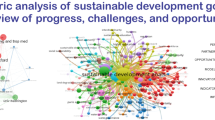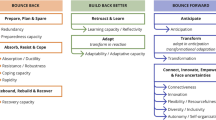Abstract
Nearly a quarter of Canada’s landmass is covered by mountainous terrain, making mountains an important aspect of the physical and human geography of the country. Mountain areas in Canada have motivated a great deal of research activity, yet the state of mountain research in the country has never been systematically characterized, precluding a detailed understanding of what is being studied, when, where, how, and by whom. In response, we conducted a systematic scoping review to rigorously identify, collate, and critically examine existing peer-reviewed articles related to mountains in Canada. 2,888 articles were included in our review, which reveals strong biases towards work in the natural sciences and in the mountain west, with little work to date in the social and health sciences or in other mountainous regions of the country. Our results demonstrate that Canada is among the most productive contributors to mountain research globally, but that topical and geographical biases in existing research effort leave important gaps that must be addressed to successfully navigate challenges and opportunities facing mountain areas in Canada. We provide a roadmap to guide future mountain-focused research activities in the country.
Article PDF
Similar content being viewed by others
Avoid common mistakes on your manuscript.
References
Adler C, Wester P, Bhatt I, et al. (2022) Cross-Chapter Paper 5: Mountains, IPCC 6th Assessment Report, Working Group II. https://doi.org/10.1017/9781009325844.022
Aggarwal A, Frey H, McDowell G, et al. (2021) Adaptation to climate change induced water stress in major glacierized mountain regions. Clim Dev 1–13. https://doi.org/10.1080/17565529.2021.1971059
Ariza C, Maselli D, Kohler T (2013) Mountains: Our Life, Our Future, Progress and Perspectives on Sustainable Mountain Development. Swiss Agency for Development and Cooperation and Centre for Development and Environment. p 90.
Chernos M, MacDonald R, Nemeth M, Craig J (2020) Current and future projections of glacier contribution to streamflow in the upper Athabasca River Basin. Can Water Resour J C 45: 324–344. https://doi.org/10.1080/07011784.2020.1815587
Egan P, Price M (2017) Mountain Ecosystem Services and Climate Change: A Global Overview of Potential Threats and Strategies for Adaptation. UNESCO, Paris. p 33.
Ford JD, Berrang-Ford L (2016) The 4Cs of adaptation tracking: consistency, comparability, comprehensiveness, coherency. Mitig Adapt Strateg Glob Change 21: 839–859. https://doi.org/10.1007/s11027-014-9627-7
Gough D, Oliver S, Thomas J (2017) An Introduction to Systematic Reviews. SAGE.
Gough D, Thomas J, Oliver S (2019) Clarifying differences between reviews within evidence ecosystems. Syst Rev 8: 1–15. https://doi.org/10.1186/s13643-019-1089-2
Gurgiser W, Price MF, Juen IF, et al. (2022) Rising slopes — bibliometrics of mountain research 1900–2019. PLoS ONE. https://doi.org/10.1371/journal.pone.0273421
Hock R, Rasul G, Adler C, et al. (2019) High Mountain Areas chapter — IPCC Special Report on the Oceans and Cryosphere in a Changing Climate (SROCC). Intergovernmental Panel on Climate Change (IPCC). https://doi.org/10.1017/9781009157964.004
Immerzeel WW, Lutz A, Andrade M, et al. (2020) Importance and vulnerability of the world’s water towers. Nature 577: 364–369. https://doi.org/10.1038/s41586-019-1822-y
Kapos V, Rhind J, Edwards M, et al. (2000) Developing a map of the world’s mountain forests. In: Price MF, Butt N (eds.), Forests in Sustainable Mountain Development: A State of Knowledge Report for 2000. CABI, Wallingford. https://doi.org/10.1079/9780851994468.0004
Kassi N, Humphries MM, McDowell G (2020) The Canadian Mountain Network: Advancing Innovative, Solutions-Based Research to Inform Decision-Making. Mt Res Dev 40: 8.
Körner C, Ohsawa M (2005) Mountain Systems, Millennium Ecosystem Assessment. Washington DC. pp 681–716.
Körner C, Spehn EM (2019) Mountain Biodiversity: A Global Assessment. Routledge.
Marshall SJ (2014) Meltwater run-off from Haig Glacier, Canadian Rocky Mountains, 2002–2013. Hydrol and Earth Syst Sci 18: 5181–5200. https://doi.org/10.5194/hess-18-5181-2014
Martín-López B, Leister I, Cruz PL, et al. (2019) Nature’s contributions to people in mountains: A review. PLoS ONE 14: e0217847. https://doi.org/10.1371/journal.pone.0217847
McDowell G (2020) Why mountains matter in Canada: They sustain us, enrich our lives, and inspire us. Canadian Geographic. November/December. https://canadiangeographic.ca/articles/why-mountains-matter-in-canada/.
McDowell G, Guo J (2021) A nationally coherent characterization and quantification of mountain systems in Canada. Mt Res Dev 41: R21. https://doi.org/10.1659/MRD-JOURNAL-D-20-00071.1
McDowell G, Huggel C, Frey H, et al. (2019) Adaptation action and research in glaciated mountain systems: Are they enough to meet the challenge of climate change? Glob Environ Change 54: 19–30. https://doi.org/10.1016/j.gloenvcha.2018.10.012
McDowell G, Stephenson E, Ford J (2014) Adaptation to climate change in glaciated mountain regions. Clim Change 126: 77–91. https://doi.org/10.1007/s10584-014-1215-z
McDowell G, Stevens M, Lesnikowski A, et al. (2021) Closing the adaptation gap in mountains. Mt Res Dev 41: A1–A10. Mountain Research and Development
Messerli B, Ives JD (1997) Mountains of the World: A Global Priority. Parthenon Publishing Group, New York. p 510.
Muccione V, Salzmann N, Huggel C (2016) Scientific knowledge and knowledge needs in climate adaptation policy: A case study of diverse mountain regions. Mt Res Dev 36: 364–375. https://doi.org/10.1659/MRD-JOURNAL-D-15-00016.1
Mukherji A, Sinisalo A, Nüsser M, et al. (2019) Contributions of the cryosphere to mountain communities in the Hindu Kush Himalaya: a review. Reg Environ Change 19: 1311–1326. https://doi.org/10.1007/s10113-019-01484-w
Munn Z, Peters MDJ, Stern C, et al. (2018) Systematic review or scoping review? Guidance for authors when choosing between a systematic or scoping review approach. BMC Med Res Methodol 18: 143. https://doi.org/10.1186/s12874-018-0611-x
Myers N, Mittermeier RA, Mittermeier CG, et al. (2000) Biodiversity hotspots for conservation priorities. Nature 403: 853–858. https://doi.org/10.1038/35002501
Page MJ, McKenzie JE, Bossuyt PM, et al. (2021) The PRISMA 2020 statement: an updated guideline for reporting systematic reviews. BMJ 372: n71. https://doi.org/10.1136/bmj.n71
Palomo I (2017) Climate change impacts on ecosystem services in high mountain areas: a literature review. Mt Res Dev 37: 179–187. https://doi.org/10.1659/MRD-JOURNAL-D-16-00110.1
Rasul G, Pasakhala B, Mishra A, Pant S (2019) Adaptation to mountain cryosphere change: issues and challenges. Clim Dev 1–13. https://doi.org/10.1080/17565529.2019.1617099
RCGS (2018) Indigenous Peoples Atlas of Canada. Royal Canadian Geographical Society.
Reid AJ, Eckert LE, Lane JF, et al. (2021) “Two-Eyed Seeing”: An Indigenous framework to transform fisheries research and management. Fish Fish (Oxf) 22: 243–261. https://doi.org/10.1111/faf.12516
Romeo R, Grita F, Parisi F, Russo L (2020) Vulnerability of mountain peoples to food insecurity: updated data and analysis of drivers. FAO and UNCCD, Rome. https://doi.org/10.4060/cb2409en
Sandford RW (2010) Ecology & Wonder in the Canadian Rocky Mountain Parks World Heritage Site. Athabasca University Press.
Shukla R, Sachdeva K, Joshi P (2017) Demystifying vulnerability assessment of agriculture communities in the Himalayas: a systematic review. Nat Hazards 1–21. https://doi.org/10.1007/s11069-017-3120-z
United Nations (1992) Agenda 21. United Nations, New York. p 351.
Vij S, Biesbroek R, Adler C, Muccione V (2021) Climate change adaptation in European mountain systems: a systematic mapping of academic research. Mt Res Dev 41: A1. https://doi.org/10.1659/MRD-JOURNAL-D-20-00033.1
Vij S, Biesbroek R, Groot A, Termeer K (2018) Changing climate policy paradigms in Bangladesh and Nepal. Environ Sci & Policy 81: 77–85. https://doi.org/10.1016/j.envsci.2017.12.010
Viviroli D, Kummu M, Meybeck M, et al. (2020) Increasing dependence of lowland populations on mountain water resources. Nat Sustain 1–12. https://doi.org/10.1038/s41893-020-0559-9
Wong C, Ballegooyen K, Ignace L, et al. (2020) Towards reconciliation: 10 Calls to Action to natural scientists working in Canada. FACETS 5: 769–783. https://doi.org/10.1139/facets-2020-0005
Acknowledgements
This study was supported by funding from the Canadian Mountain Network and Canada’s Natural Sciences and Engineering Research Council (NSERC). We are grateful for map and figure preparation support provided by Jiaao Guo, useful feedback from Professor Shawn Marshall and Madison Stevens, and helpful recommendations from three anonymous reviewers, all of which improved our manuscript. The authors declare there are no competing interests. Data for this article is available in the Supplementary Materials.
Funding
Funding note: Open Access funding provided by University of Zurich
Author information
Authors and Affiliations
Corresponding author
Rights and permissions
Open Access This article is licensed under a Creative Commons Attribution 4.0 International License, which permits use, sharing, adaptation, distribution and reproduction in any medium or format, as long as you give appropriate credit to the original author(s) and the source, provide a link to the Creative Commons license, and indicate if changes were made. The images or other third party material in this article are included in the article’s Creative Commons license, unless indicated otherwise in a credit line to the material. If material is not included in the article’s Creative Commons license and your intended use is not permitted by statutory regulation or exceeds the permitted use, you will need to obtain permission directly from the copyright holder. To view a copy of this license, visit http://creativecommons.org/licenses/by/4.0/.
About this article
Cite this article
McDowell, G., Hanly, K. The state of mountain research in Canada. J. Mt. Sci. 19, 3013–3025 (2022). https://doi.org/10.1007/s11629-022-7569-1
Received:
Revised:
Accepted:
Published:
Issue Date:
DOI: https://doi.org/10.1007/s11629-022-7569-1




